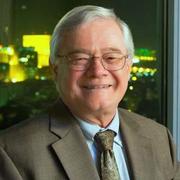
During the National Prayer Breakfast on February 2, President Donald Trump discussed removing the Johnson Amendment.
The amendment restricts political speech by tax-exempt churches. HDS Associate Dean for Ministry Studies Dudley Rose discussed how Trump’s proposal would impact faith leaders.
HDS: How would endorsing a particular candidate help or hurt faith leaders?
DR: This is a complicated question, I think. First, in most communities of faith a diversity of views on many subjects is expected and valued. Once faith leaders or organizations become aligned with particular candidates or parties they risk becoming ever more homogeneous and less likely to be places where discourse across difference is possible. One would hope for places where difference of view can be held together, at least to some degree, by a shared faith.
HDS: Would we see a flood of endorsements or more reluctant faith leaders if the amendment were done away with?
DR: I suspect this would depend, at least initially, on how the faith leaders in question understand their constituencies. The already and increasingly divided nature of our society makes me fear that religious institutions are already becoming more politically siloed, if that’s a word. If I’m right, then the conditions may well be present already for a large number of faith leaders to make endorsements.
HDS: How should faith leaders engage in political activity if Congress lifts the Johnson Amendment? Or should it be avoided?
DR: I do think lifting the act should be avoided. The line between offering moral and partisan counsel may be fuzzy, but drawing it does aim at the idea that faith leaders and religious organizations are supposed to answer to something more sacred and transcendent than hyper-partisan politics. The moral voice that faith leaders and organizations are called to raise is a good thing, and sometimes it needs to be raised in strong resistance to societal or political ills. To the degree that those leaders or organizations have become primarily partisan advocates is the degree to which that moral voice will ring hollow.
—by Michael Naughton
